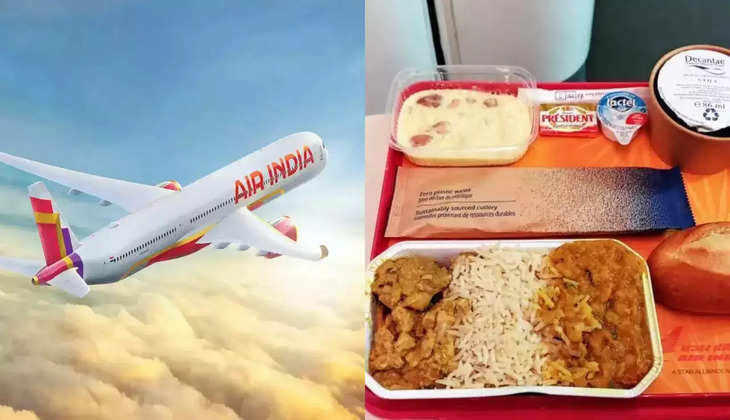Air India Changes In-Flight Meal Policy: Halal Meals Now Only for Muslim Passengers

Many passengers have questioned Tata Group-owned Air India's recently announced major modification to its in-flight meal policy. Air India said it will no longer be providing halal meals to Hindu and Sikh customers on flights in an attempt to simplify its meal options and satisfy the various dietary requirements of its travellers. The change fits a bigger change in the airline's approach of handling its special food offerings.
Up until recently, especially on foreign flights, Air India provided halal meals to customers upon request. The new policy will see the airline rebrand halal meals, traditionally labelled as "MOML" (Muslim Meal), as special meals (SPML), pre-booked. Passengers who ask for halal meals will still be able to have them; but, only those with a specific request for Muslim meals will be qualified for halal certification.
One important feature of this change is that halal meals won't be defaultly provided to every passenger. Rather, these meals will be especially reserved for Muslim passengers; halal certification only applies to meals for individuals using specified routes, such flights to and from Saudi Arabia. All meals served on these Saudi sectors—including well-known locations like Jeddah, Riyadh, Dammam, and Medina—will be halal; travellers will get a halal certificate for the upgraded cuisine. Halal certification will be standard on Haj flights, hence this policy will also apply there.

Air India underlined that the action was aimed to be more in line with passenger tastes than to be exclusive, thereby guaranteeing clarity in its food offers. The airline underlined that although halal cuisine would now be exclusively reserved for those who have specifically asked it as part of the Muslim meal service, customers from all faith backgrounds—including Hindu, Sikh, or otherwise—will still have access to a great selection of meal alternatives.
Mixed responses have resulted from the news; some applaud the airline for offering better lunch options while others have questioned the reasoning behind the choice. Eliminating halal meals from general access would cause trouble for those who enjoy halal cuisine but are not necessarily Muslims. Others argue that the choice would confuse travellers who had formerly depended on halal food as a normal choice.
The timing of the policy change is especially remarkable since it aligns with increasing awareness and debate on dietary restrictions and cultural sensitivity in the aviation sector. Airlines are progressively serving a worldwide and varied clientele, therefore improved administration of meal services—especially for long-haul flights—becomes more important.
For now, if they need particular dietary options, Air India customers travelling on the impacted routes are recommended to pre-book their special meals. Though it remains to be seen whether this policy modification will be greeted with long-term acceptance or opposition, it is evident that the airline is adjusting its menu to fit changing consumer expectations and wants.
--
